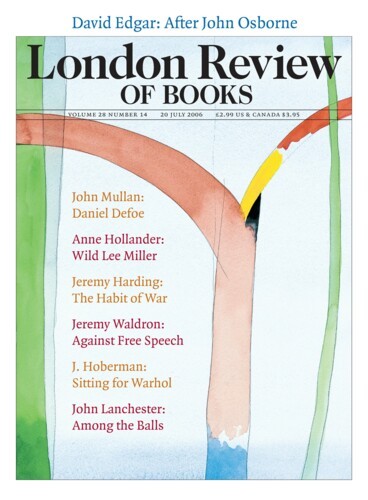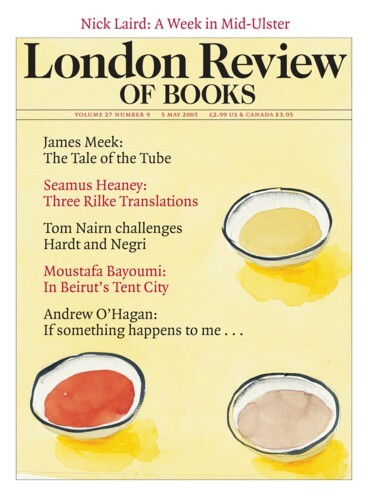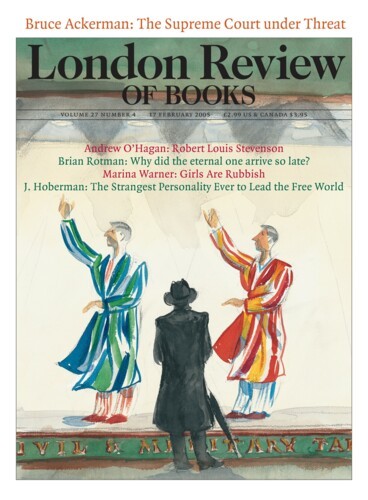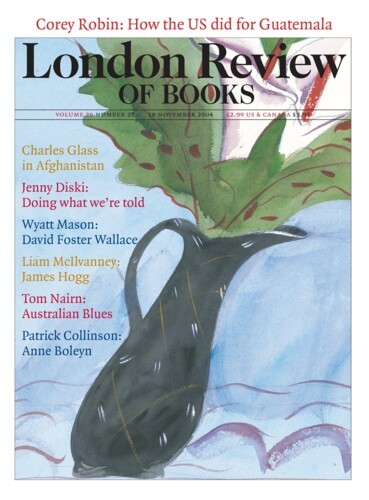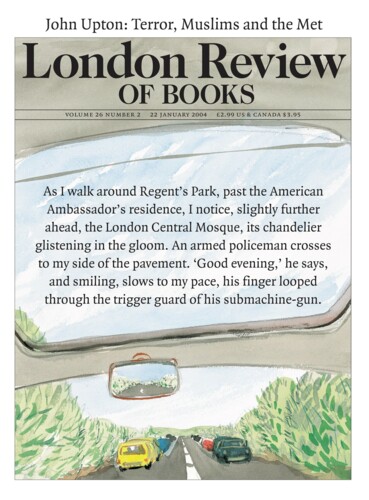“There is a frankness about Goldman’s pursuit of theme and coincidence. In the novel’s second paragraph we are introduced to a conceit that explains, with untoward explicitness, the continual reappearance of balloons and inflated bladders throughout the book. ‘What if love, earthly or divine, is to history as air is to a rubber balloon?’ Guatemala is an important source of latex, which eventually enables Mack Chinchilla to found a rubber-goods dynasty in New England. Every chapter includes an anecdote about things made from blowing air into rubber. An epilogue asks: ‘What’s more American than balloons? And what’s spookier?’ The stuff that was once ‘a sacred substance to American Indians from Mexico to Brazil’ becomes the material of celebration and idiocy. But also, clearly, rubber is supposed to be like the material of Goldman’s narrative, made to float by human breath.”
One day, María de las Nieves Moran, the heroine of Francisco Goldman’s The Divine Husband, unexpectedly receives a letter from a woman who had, many years earlier, been her fellow...
